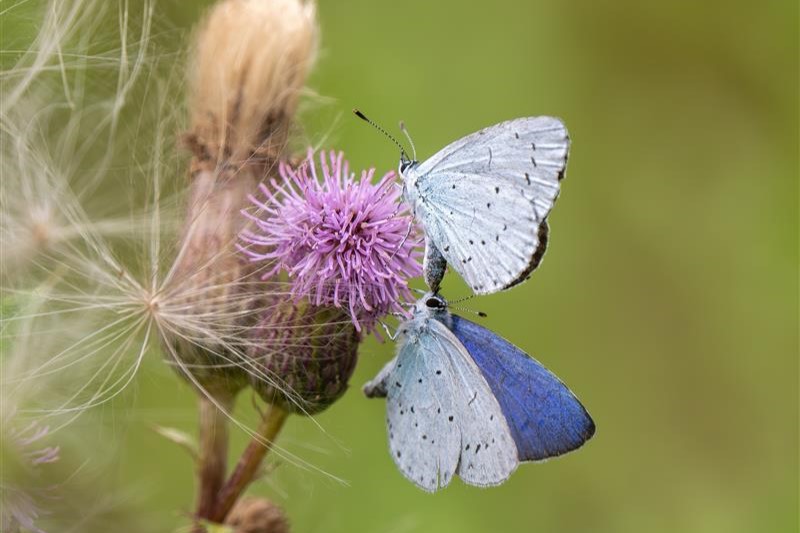Council takes steps to protect wildlife and unlock house building in Dorset

Dorset Council has successfully secured its first habitat bank, a key site for wildlife restoration in the county, marking a major milestone in its commitment to address both the nature and housing crisis.
The need for development can put pressure on natural environments, but new government rules introduced last year aim to ensure that nature in Dorset is not just protected but improved as part of the development process. Now, to get planning permission, most development projects must leave nature in a better state than they found it.
To help developers do this, Dorset Council is working with landowners to create habitat banks across the county. These banks are special areas of land that can be improved for wildlife to make up for natural habitats lost during construction. Developers can buy ‘units’ from these sites to meet their planning requirements and help nature recover and thrive in the local area.
Purns Mill near Gillingham is the first site to be secured as a biodiversity net gain habitat bank in the Dorset Council area through an agreement between the landowner, site promoter, and Dorset Council.
Cllr Nick Ireland, Leader of Dorset Council and Cabinet Member for Climate, said:
“We are incredibly excited about the establishment of the Purns Mill habitat bank. The signing of the contract with the landowner last week represents a groundbreaking step forward in our mission to balance the urgent need for housing with our commitment to protect and enhance Dorset's natural environment.
“By securing sites like this one, we can ensure that housing development in our county goes hand in hand with nature recovery.”
The land at Purns Mill spans 16 hectares and is a mix of cattle grazed pasture, hedges and two chalk streams, with great potential to become a valuable space for nature in the county.
Under a new agreement with the council, the landowner will carry out specific activities to improve the area for wildlife over the next 30 years. These activities will include creating species-rich grasslands, mixed scrub, ponds, and enhancing existing hedgerows and streams to help local wildlife thrive, while still allowing the land to be used for farming. The landowner can sell these ‘biodiversity gain units’ to developers, helping enable the building of housing in Dorset.
Commenting on the announcement, the landowner of the Purns Mill site said:
“We are delighted to collaborate with Dorset Council in establishing the land around Purns Mill as a habitat bank. This initiative allows us to significantly enhance local biodiversity, improving the biodiversity of the river and surrounding habitats, and providing a sustainable financial model for transforming underutilised land into valuable ecological spaces.
“We hope this project will demonstrate how sustainable residential development in villages like Colesbrook can combine with environmental stewardship, creating a positive impact for the land and much needed housing solutions for the community."
The establishment of Purns Mill as a habitat bank is a significant step towards unlocking housing development in Dorset while ensuring spaces for nature are protected and improved. By providing a way for developers to meet their biodiversity requirements within the county and beyond, this initiative supports the creation of high quality and affordable housing while also addressing the nature and climate crisis.
This project, along with the introduction of biodiversity net gain into the planning system, is part of broader efforts to protect and recover nature. To find out more or to have your say on a local nature recovery strategy for Dorset, visit the Dorset Council website.

Comments
3 Comments
Hi Daniel - This new habitat bank doesn’t replace Dorset’s many small but vital biodiversity areas—it adds to them. Through 'biodiversity net gain' policy, planning rules now require at least a 10% biodiversity gain, meaning new habitats must be created on top of what already exists. You can view Dorset’s current ecological network, including wildlife corridors and valuable undesignated habitats, on DorsetExplorer under the Environmental Records layer. The importance of these areas is recognised in national policy and protected through local planning.